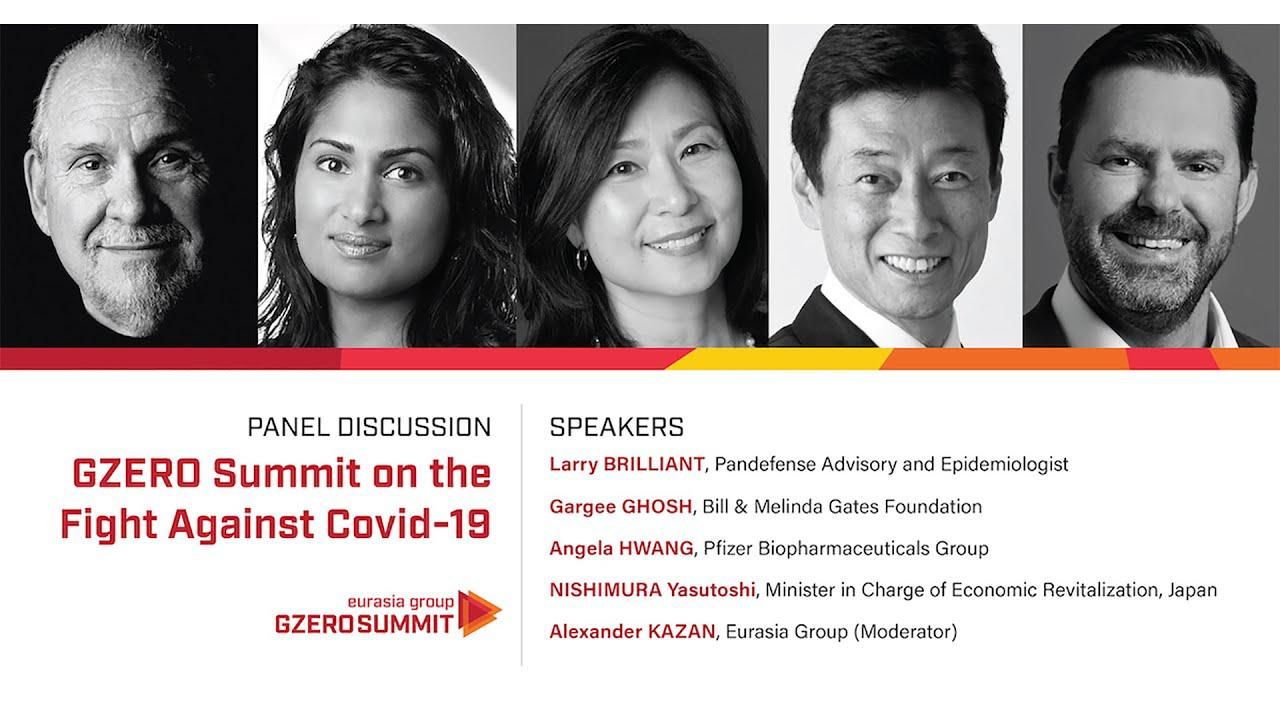December 09, 2020
Almost one year since the coronavirus upended the world, what's the current state of play on ending the pandemic, and what challenges we face towards vaccinating everyone in 2021.
Fortunately, as the virus has grown exponentially, so has science, Dr. Larry Brilliant, CEO of Pandefense and one of the world's most highly regarded epidemiologists, said during the panel discussion on fighting COVID-19 at the 2020 GZERO Summit in Japan.
Science, he explained, has accomplished the audacity of developing successful vaccines in record time. That's why he's optimistic about ending the pandemic next year in many parts of the world, even if the next 2-3 months will be very bad mainly in Western countries.
Part of the reason for his optimism is the great news about the efficacy of vaccines like the one developed by US pharmaceutical giant Pfizer and German company BioNTech, which the UK started administering to its citizens on Tuesday.
For Angela Hwang, president of Pfizer's biopharmaceuticals group, developing the vaccine is just the start. Now enough people need to get vaccinated to achieve the herd immunity necessary to stop the virus in its tracks.
To build sufficient trust in the drug to achieve that goal, she said, everyone needs to be on board. It'll take not only the private and public sectors working together but all of society committed to making everyone understand that vaccines work, and that you must get inoculated at a moment of extreme resistance in some countries.
Also, mass vaccination means it must happen across the developing world at the same level as in developing countries. The world is just too interconnected to leave anyone behind, noted Gargee Ghosh, president for global advocacy and programs at the Bill and Melinda Gates Foundation.
Even where many people are suspicious of vaccines, she added, ultimately the clear benefits of restarting economies will hopefully convince those who fear rolling up their arms.
Vaccinations likely won't be a problem in Japan, where Yasutoshi Nishimura, minister, in charge of economic revitalization, underscored how the majority of the population has heeded their advice to practice social distance, wear masks, stay at home and shut down businesses despite no mandatory orders to do so.
Watch the above video to learn more insights from our panelists.
More For You
Miami Mayor-elect Eileen Higgins points as she thanks her staff and supporters on the night of the general election, on Tuesday, Nov. 4, 2025.
Carl Juste/Miami Herald/TNS/ABACAPRESS.COM
A Democrat won Miami’s mayoral race for the first time in nearly 30 years. The Republican defeat will ring some alarms for the party – and their support among Latino voters.
Most Popular
Walmart’s $350 billion commitment to American manufacturing means two-thirds of the products we buy come straight from our backyard to yours. From New Jersey hot sauce to grills made in Tennessee, Walmart is stocking the shelves with products rooted in local communities. The impact? Over 750,000 American jobs - putting more people to work and keeping communities strong. Learn more here.
© 2025 GZERO Media. All Rights Reserved | A Eurasia Group media company.
